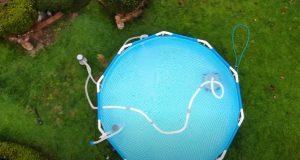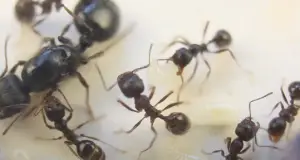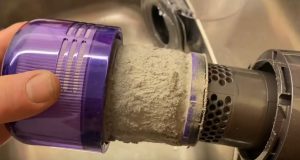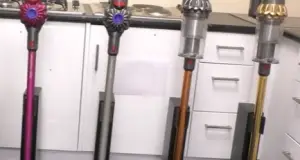How Long Does Vacuum Sealed Salmon Last In the Fridge?
How long does Vacuum-Sealed Salmon last in the Fridge?
Vacuum sealing cooked Salmon is one way to keep it fresher longer than storing it in plastic containers. If properly vacuum-sealed, you can keep cooked beef in the refrigerator for up to 14 days. When items are vacuum-sealed, they can stay fresher in the refrigerator for longer. Continue reading to find out how long does vacuum-sealed salmon last in the fridge.
How long does Vacuum-Sealed Salmon last in the Fridge?
Salmon degrades when bacteria and mold are allowed to grow on it. As a result, it is imperative to keep Salmons at the proper temperature and cook within a specific time frame. Depending on the kind of Salmon, cooked Salmon can be refrigerated for up to five days and frozen for 12 months. Cooked Salmon may be vacuum-sealed and stored to extend its shelf life.
Vacuum-sealing cooked Salmon before keeping it in the refrigerator can keep it fresh for up to 14 days. The kind of Salmon determines how long the Salmon will stay fresh. The elimination of all air from the bag in which the Salmon is stored, which limits the growth of bacteria, is known as vacuum sealing. Here’s how to vacuum seal cooked Salmon before storing it in the fridge:
- Make sure the components are fresh, clean, and dry.
- Remove the bones or cover them with protective netting to avoid puncturing the plastic bag.
- Place the Salmon in the vacuum sealer bags as close to the center as possible.
- Insert the edge of the bag into the vacuum sealer.
- Turn on the sealer and use your hands to keep the bag in place.
- The process is finished when all of the air has been drained from the bag and there are no creases.
- Write the date for the sealed bag.
- Refrigerate at temperatures no higher than 40 degrees Fahrenheit.
Vacuum sealing is suitable for all types of prepared Salmons, including poultry, fish, cattle, and pork. Before reheating cooked Salmon, do not break the seal or puncture the bag.
It’s also an ideal plan to keep the vacuum-sealed Salmon in the coolest part of the fridge, away from family members who are looking for something to eat.
Salmons That Can Be Vacuum Sealed
Almost any type of cooked Salmon may be vacuum-packed and stored in the refrigerator. The amount of time these items will last in the fridge depends on the type of Salmon.
Cooked beef and veal may be vacuum sealed for up to six weeks, while pork can only be vacuum sealed for two weeks. Although poultry and fish have the shortest shelf life, they may be stored in the fridge for a week after being vacuum packed and chilled.
A multitude of factors influences the amount of time Salmon lasts in the refrigerator after being vacuum sealed. The freshness of the Salmon, the temperature of the refrigerator, the presence of the marinade, the cleanliness of the Salmon, and the lamination used in the vacuum-sealing process are all examples of these features.
When the Salmon is ready to use, look for any strange odors or discoloration. If it smells bad or is discolored, dump it and find something else to do for dinner.
Salmons Freeze-Dried and Vacuum Sealed
Salmon that has been vacuum-sealed and previously cooked can be frozen for up to one year and up to three years.
Ground Salmon and hamburgers have a one-year shelf life, whereas beef, pig, and chicken have three. Finally, vacuum-sealing cooked Salmon can increase their shelf life by three to five times that of conventional methods of preserving cooked Salmon.
Uncooked Salmon Vacuum Sealing
Most uncooked Salmons may be kept in the refrigerator for four to five days after being vacuum packed, depending on the Salmon. Even if vacuum-packed, ground beef, kidneys, and livers should only be kept in the fridge for one to two days.
Although uncooked Salmon can be vacuum-sealed for optimal freshness and benefits, it is advised to prepare the Salmon before vacuum-sealing and keeping it in the fridge.
The Benefits of Vacuum Sealing
Vacuum-sealing cooked Salmon has many more advantages than merely extending its freshness. For example, Vacuum-sealing cooked Salmons helps prevent freezer burn since there is less liquid within the bag.
It also aids in the organization of your refrigerator and freezer because the Salmon is recognized and stackable. This approach saves money while also increasing food taste by sealing in all liquids and spices often lost in regular food storage containers and bags.
How to tell if Salmon is bad?
Lastly, there are certain things to consider while storing food, whether it is prep, cook or reheat, to verify it is not in bad condition;
- If you find raw fish excessively soft and smell fishy, then it is time to discard it.
- Moreover, if you are working with cooked Salmon, make sure to eat it in three to four days before it gets bad.
Bottom Line
Outside of canning, the best choice for food preservation is vacuum-sealing. Because all food continues to ripen due to regular air exposure, this strategy preserves foods significantly better than plastic containers, aluminum foil, or plastic wrap. Furthermore, being exposed to air might encourage the growth of bacteria and mold in food.
Vacuum sealing food removes all oxygen from contact with the food, causing it to ripen more slowly. It also stops mold and bacteria from building up in foods. As a result, the meals keep fresher for longer after being vacuum sealed.




